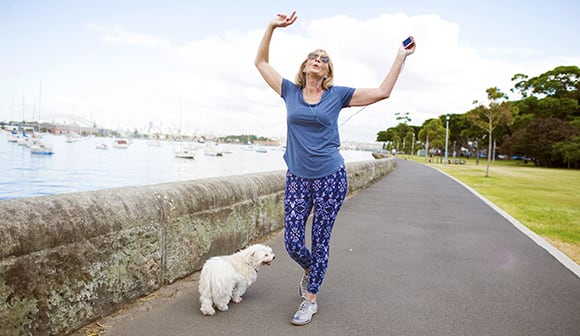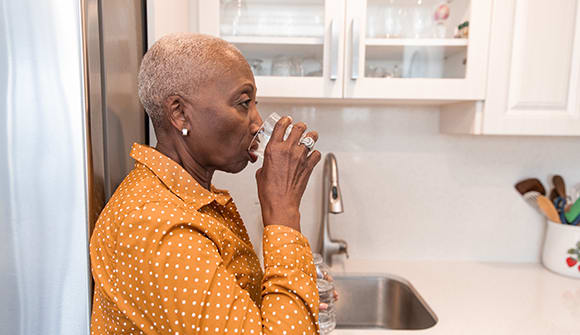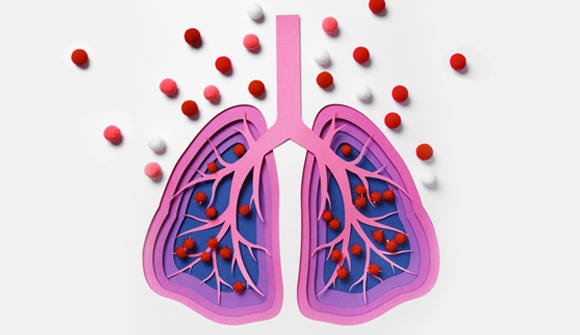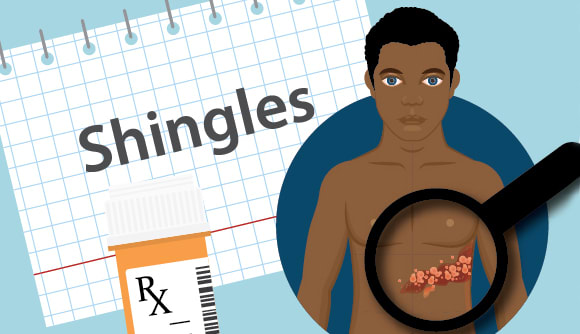Walk to remember
Regular physical activity can cut your risk for dementia in half.
Article Date:

Like "an apple a day keeps the doctor away," some health advice sounds too good to be true – but a study found that walking can help reduce the risk of dementia in older adults.
According to the study, taking 3,800 steps a day lowers your chance of developing dementia by as much as 25%, and better yet, walking 10,000 steps a day cuts your chances in half. The analysis, published in JAMA Neurology, studied the walking habits of more than 78,000 adults over three years.
"The study found that higher step counts were related to a lower dementia risk," said Alison Bartfield, MD, medical director for Baptist AgeWell.
As a good rule of thumb, 5,000 steps equal approximately one mile.
The exercise-brain connection
Doctors believe walking helps reduce vascular dementia, which is the second-most common type of dementia after Alzheimer's disease. It develops when blood flow to the brain is impaired. This can happen when blood vessels become damaged by cholesterol and fats or from toxins, like those in cigarettes.
"Just like in your heart or other parts of your body, you need good circulation to feed your body and your brain," Dr. Bartfield said. "That's what vascular sufficiency is."
Exercise helps reduce inflammation in blood vessels and promotes better circulation by building more capillary pathways. It's one of the pillars of a brain-healthy lifestyle that also includes a healthy diet, social connections and mentally stimulating activities.
"People who live this way are much less likely to get dementia," Dr. Bartfield said. "Or if they do, it is more likely to be mild and develop at the end of life, rather than a person living with it for a prolonged period."
Maintaining your independence
The National Institutes of Health endorses the "4 M's" for older adults: medications, mobility, mentation (mental activity) and what matters most.
"Many of my patients tell me what matters most is being independent – being able to bathe, dress, do some light cooking, housework and go on outings," said Dr. Bartfield.
She explained that older adults' independence relies mostly on their ability to maintain their mentation (avoiding or diminishing their risk of dementia), as well as mobility (the ability to get up and be stable on their feet without the need for assistive devices like wheelchairs, canes or walkers). Daily walking addresses these important quality-of-life measures.
"Walking 10,000 steps a day may seem challenging because our society has become so sedentary, but it's certainly attainable for most people," said Dr. Bartfield.
She said people from other cultures are accustomed to walking long distances every day and they're healthier because of it. In Sardinia, Italy, where life expectancy is one of the highest in the world, walking, often up steep hills, is the primary way to get around.
Reducing hereditary risk
"My father watched as his father (my grandfather) went from being very active to sedentary when he retired. When he stopped exercising, he developed dementia," said Dr. Bartfield. "To modify his own risk of dementia, my father walked two miles a day religiously until his mid-90s. He still walks most days, but at almost 96 years old, he has cut back to one mile a day."
She added, "He still lives independently and even works part-time. He understands that staying active is a lifeline to alter his genetic risk and maintain his independence."
Making steps routine
You can add more steps to your day with these easy tips:
- Stand and pace during a conversation, rather than sitting
- Walk the dog
- Park your car a good distance from your destination
- Find a convenient path near home or work to take a daily walk
- Take a walk during your lunch break
- Pedal a leg exercise machine while sitting (great for those who have difficulty walking)
"The more you move, the better your health will likely be," Dr. Bartfield said. "And it's not that hard to implement in your everyday life."
Do you want to stay active and independent?
Let Baptist AgeWell Center for Health help. Our unique type of primary care is for people 65+ who want to be proactive with their health to live their best lives.
Sources: JAMA Neurology, Centers for Disease Control and Prevention



